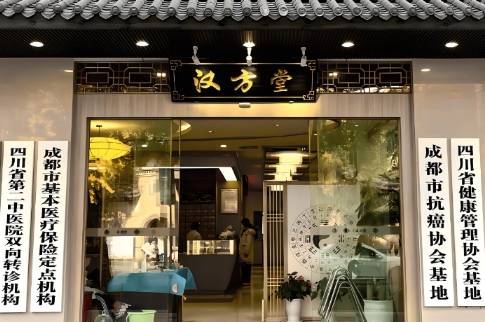Depression: A typical situation of depressive disorder, with core symptoms of significant and persistent low mood, reduced interest, etc., the most common mental disorder, with a high clinical cure rate.
Depression is a mental disorder with a high incidence and a high clinical cure rate, but due to insufficient public awareness of the disease, there are few patients who persist in receiving proper treatment, leading to low treatment acceptance rates and high recurrence rates.
It is characterized by significant and persistent mood depression as the main feature, and in severe cases, it may lead to depressive stupor, manifested as fixed facial expressions, lack of response to stimuli, reduced speech or even mutism, reduced movement or even immobility, and so on.
Chengdu Hanfangtang Health Tips: Depression usually manifests as low mood, reduced interest, lack of energy, etc. during an episode.
The exact triggering factors of this condition are still unclear, but currently, stressful life events, pessimistic personality traits, history of other mental illnesses, severe chronic diseases, alcoholism, substance abuse, etc., are closely related to the onset of depression.
The manifestations of a depressive episode can be divided into three aspects: core symptoms, psychological symptoms, and physical symptoms.
Previously, depression episodes were often summarized as the “three lows,” which are low mood, slow thinking, and decreased willpower. These three symptoms are considered typical of severe depression, but they may not necessarily appear in all patients.
When feeling persistently low mood, lack of interest in everything or decreased interest, accompanied by slow reactions, slow thinking, memory decline, and other signs resembling depression, seeking help from a doctor promptly is recommended. In addition, if family members or friends notice these symptoms in loved ones or friends, they should actively encourage seeking medical attention.
For patients already diagnosed with depression, strict adherence to medical treatment advice and regular follow-up visits are essential. Even if the condition is effectively controlled through treatment, in case of major life changes or signs of a depressive episode reoccurring, seeking medical attention promptly is important.
Expert analysis from Hanfangtang: Treating depression is not just about relieving the patient’s suffering; it also reduces the burden on families and society once the patient can reintegrate into society. The treatment of depression mainly includes medication, psychotherapy, and physical therapy.
In traditional Chinese medicine, depression is referred to as “Yu Zheng,” primarily involving liver depression and qi stagnation. Traditional Chinese medicine treatment for depression usually involves medications and non-pharmacological methods, with a certain effectiveness for mild to moderate depression and better results for mild depression.
Antidepressant medication has a therapeutic effect on depressive mood as well as accompanying anxiety, tension, and somatic symptoms, with an effective rate of 60% to 70%. Therefore, actively cooperating with medical treatment, strictly following medication advice, can alleviate most patients’ symptoms and restore them to their pre-illness state.
Depression tends to recur easily, so patients and their families should monitor changes in the condition daily, follow medical advice for regular check-ups, and seek medical attention immediately if recurrence symptoms appear.
Lu Sanming, male, currently practices at the Chengdu Jinniu Hanfangtang Traditional Chinese Medicine Outpatient Department, specializing in oncology and serving as deputy chief physician.
He has deep professional knowledge and extensive clinical experience in the field of traditional Chinese medicine. He excels in treating complex traditional Chinese medicine cases, especially in geriatrics, cardiovascular and cerebrovascular diseases, diabetes, tumors, gout, and other pain-related diseases.
Dr. Lu Sanming adheres to the traditional treatment concepts and techniques of Chinese medicine, focusing on the patient’s overall health and comprehensive treatment. He advocates for individualized treatment based on the specific condition, combining multiple traditional Chinese therapeutic methods such as herbal medicine, plasters, and acupuncture to achieve the best treatment outcomes.
He specializes in various advanced-stage malignancies such as lung cancer, gastric cancer, esophageal cancer, liver cancer, nasopharyngeal cancer, bone cancer, oral cancer, laryngeal cancer, colorectal cancer, breast cancer, cervical cancer, lymphoma, bladder cancer, and prostate cancer.
Coming from a family legacy of traditional Chinese medicine practitioners and renowned in the southwestern region, Dr. Lu Sanming has been engaged in clinical work in treating malignant tumors with Chinese medicine for over 40 years, possessing extremely rich diagnostic and therapeutic experience, particularly in the fields of gastric cancer and chronic gastritis.


